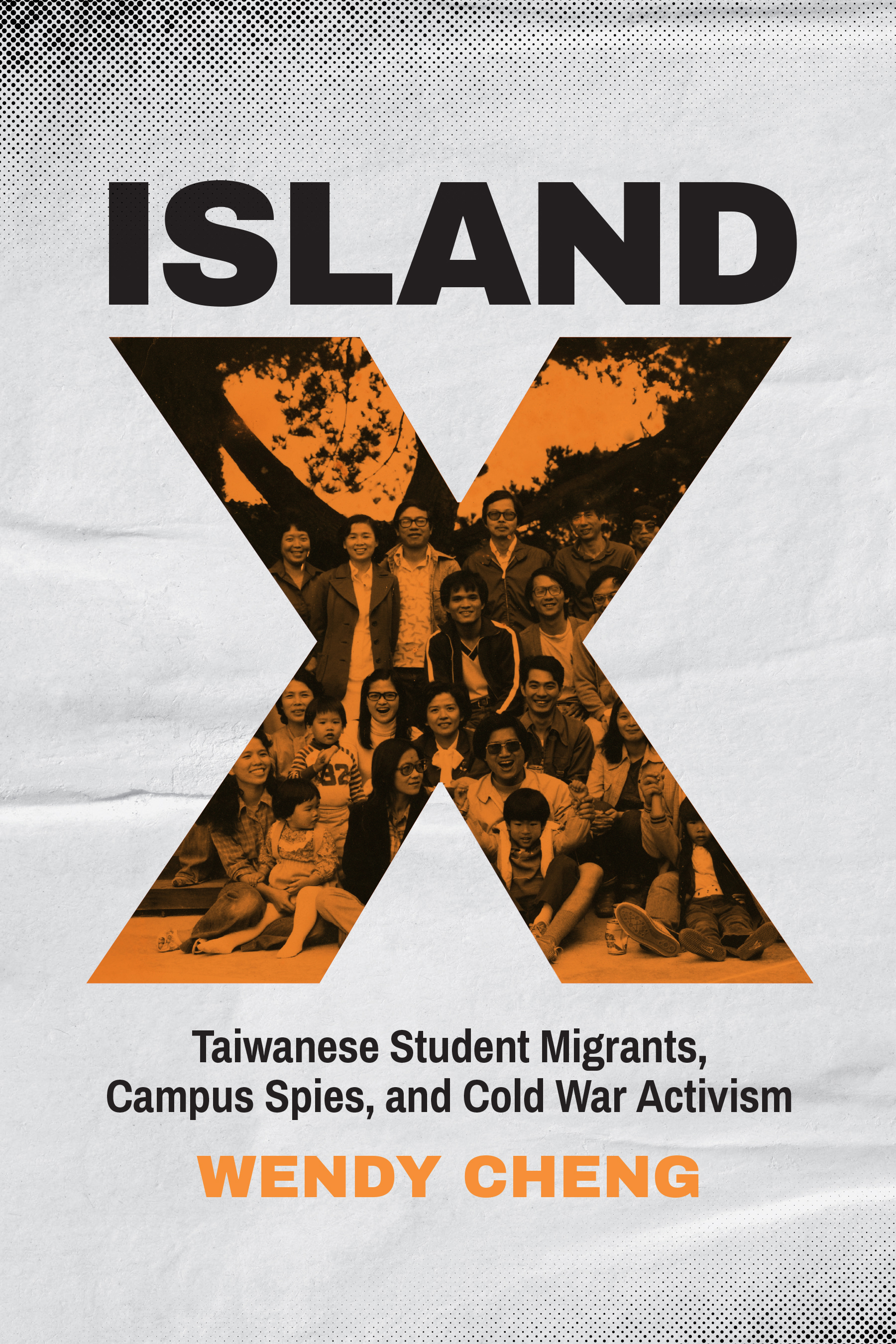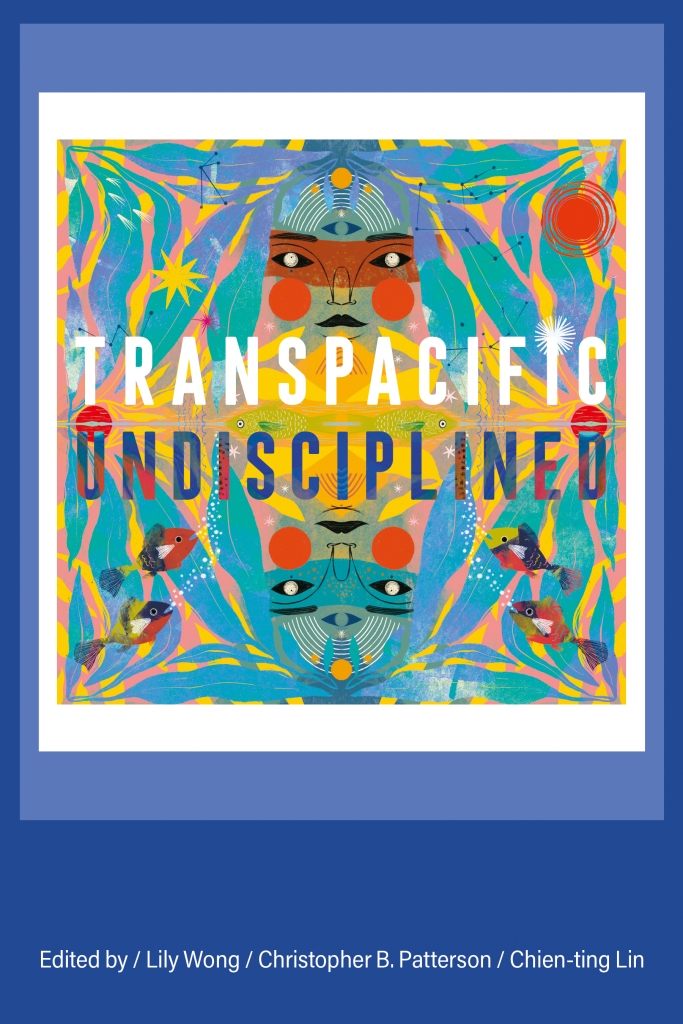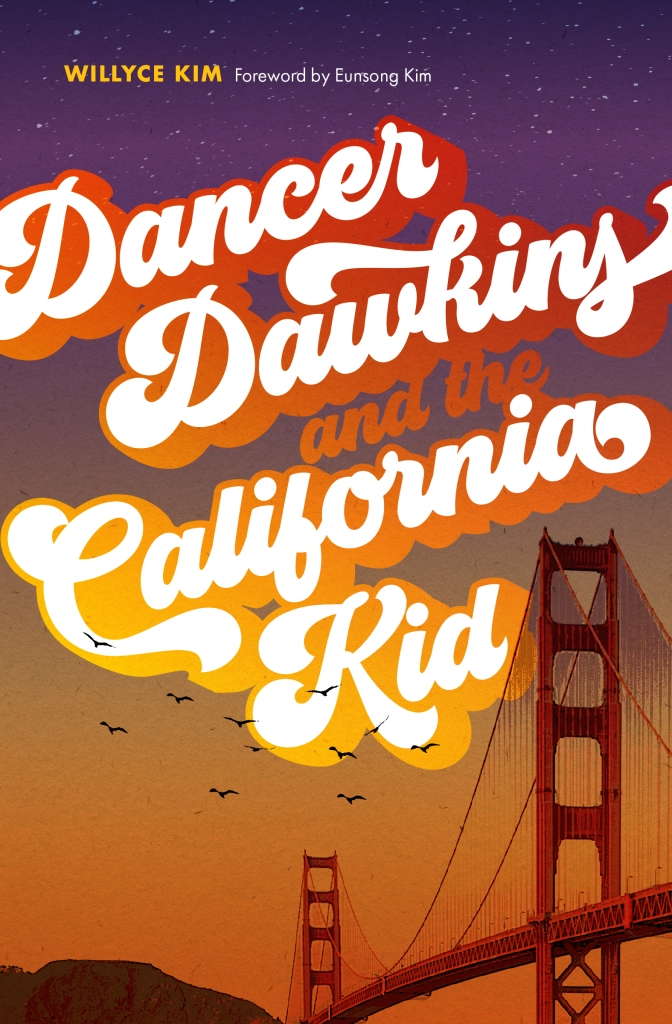News
The University of Washington Press has an outstanding opening for an Editorial Assistant (job number 153892). Please help us get the word out to excellent candidates who are interested in getting into acquisitions!
We were thrilled to announce that starting March 1, 2018, the University of Washington Press joins the UW Libraries and reports to the vice provost of digital initiatives and dean of University Libraries, Lizabeth (Betsy) Wilson. The Press and the Libraries currently collaborate on a number of joint initiatives, and the Press has also published a number of books in association with the Libraries. Read the full press release on the UW Press Blog and more at Shelf Awareness Pro.
Monthly Giveaways
Reviews and Interviews
The Spokesman-Review publishes an opinion piece by The Spokane River editor Paul Lindholdt.
The Indian Express features an article by High-Tech Housewives author Amy Bhatt about how US immigration policy is impacting Indian families.
The Seattle Times mentions Seattle Walks by David B. Williams in a Lit Life column about the Seattle Public Library’s Peak Picks program.
Light reviews Nasty Women Poets edited by Grace Bauer and Julie Kane (dist. Lost Horse Press): “This anthology is the burn, the salve on the burn, and the funny story you make up years later to explain the scar.”—Barbara Egel
Kotaku Australia includes Black Women in Sequence by Deborah Elizabeth Whaley in a round-up of comics-related Black History Month reads (2/15/18). The author also gets a mention in a New York Times opinion piece (no book mention; 2/16/18), which is syndicated and translated at Gazeta do Povo.
UW Today / UW News highlights news that UW professor emeritus and UW Press author Quintard Taylor has been awarded the lifetime achievement award from the Washington State Historical Society. The Forging of a Black Community gets a mention.
Redmond Reporter features Looking for Betty MacDonald by Paula Becker.
The Forbes Science / #WhoaScience stream features the second edition of The Orphan Tsunami of 1700 by Brian F. Atwater, Satoko Musumi-Rokkaku, Kenji Satake, Yoshinobu Tsuji, Kazue Ueda, and David K. Yamaguchi (published with US Geological Survey, Department of the Interior): “A rather beautifully illustrated account.”—Robin Andrews
Above & Beyond publishes an article about ptarmigans by Michael Engelhard. Ice Bear gets a byline mention.
University of Montana News features Douglas H. MacDonald and Before Yellowstone.
The Fil-Am Magazine and Inquirer.net US review A Time to Rise edited by Rene Ciria Cruz, Cindy Domingo, and Bruce Occena: “For anyone looking to engage in the issues they believe in or find inspiration amid today’s discouraging headlines, the lessons shared by former KDP members in A Time to Rise are deeply impactful. . . . Detailed and informative, the memoirs in A Time to Rise hash out the struggles that made the difficult road to justice possible. . . . More than a list of achievements, A Time to Rise is personal.”—Renee Macalino Rutledge
Association of King County Historical Organization (AKCHO) Heritage Advisor / News features Frederick L. Brown and his 2017 AKCHO Virginia Marie Folkins Award-winning book The City Is More Than Human.
The Art Newspaper reviews No Idols by Thomas Crow (dist. for Power Publications):”The greatest value of No Idols is in its widest implication: that even if we try, we cannot rid ourselves of the past. Art, stripped of its religious foundations, lives on in a secular world, but ghostly remnants will always remain.”—Pac Pobric
International Examiner mentions Monica Sone’s Nisei Daughter and Yoshiko Uchida’s Desert Exile in a review of Jeanette Arakawa’s The Little Exile.
Live Science mentions Ancient Ink edited by Lars Krutak and Aaron Deter-Wolf in an article about newly published research on prehistoric tattooing. The article interviews lead researcher and book contributor Renée Friedman, and her team’s original article is published in the March 2018 issue of Journal of Archaeological Science.
Ethnic Seattle features Monica Sone and Nisei Daughter in a Women’s History Month round-up of women of color writers from Seattle.
Diplomacy’s Public Dimension reviews Mediating Islam by Janet Steele: “Steele brings the strengths of an accomplished journalism and media scholar and twenty years of field research in Southeast Asia to a book that explores important questions. . . . Not least among many contributions in this important study is the way the author, a self-described Western, secular, female scholar, has engaged in sustained, productive cross-cultural dialogue with journalists in majority Muslim countries, many of whom are not liberal or secular.”—Bruce Gregory
Panorama Television (PCTV) “Now Where Were We?” interviews Lorraine McConaghy about Free Boy. Stream the segment on YouTube.
Food Politics blogger Marion Nestle features The Organic Profit by Andrew N. Case.
The New York Times Lens section’s latest Race Stories piece by Maurice Berger features Al Smith’s life, work, and Seattle on the Spot (dist. for Museum of History and Industry).
Cool Green Science (the conservation science blog of The Nature Conservancy) reviews Razor Clams by David Berger: “An entertaining account, and guide, to the real fun of digging your own food in the beach. . . . Berger’s book is an excellent testimony that gathering is still an enriching, fun and tasty pursuit. Long may it be so.”—Matthew L. Miller
Science interviews Ted Pietsch, coauthor of the forthcoming Fishes of the Salish Sea, about first-ever footage of living anglerfish. More via UW News.
Santa Fe Council on International Relations interviews Janet Steele about Mediating Islam.
The Seattle Times Outdoors section features two (out of six) spring hikes from Seattle Walks by David B. Williams.
Humboldt State Now interviews Cutcha Risling Baldy and mentions We Are Dancing for You in a news release about the 32nd Annual California Indian Conference to be held at Humboldt State University on April 5 and April 6. She is chair of the conference organizing committee.
Science to the People rebroadcasts their interview with Dawn Day Biehler about Pests in the City.
New Books Network interviews Frederick L. Brown about The City Is More Than Human (posted on the NBn American Studies, American West, Environmental Studies, History, and Native American Studies channels).
The Booklist Reader features Carlos Bulosan’s America Is in the Heart and recommends additional contemporary Filipino-American fiction: “Carlos Bulosan’s America Is in the Heart is a cornerstone of classic Asian-American literature.”—Terry Hong
New Books
 A Family History of Illness: Memory as Medicine
A Family History of Illness: Memory as Medicine
By Brett L. Walker
While in the ICU with a near-fatal case of pneumonia, Brett Walker was asked, “Do you have a family history of illness?”—a standard and deceptively simple question that for Walker, a professional historian, took on additional meaning and spurred him to investigate his family’s medical past. In this deeply personal narrative, he constructs a history of his body to understand his diagnosis with a serious immunological disorder, weaving together his dying grandfather’s sneaking a cigarette in a shed on the family’s Montana farm, blood fractionation experiments in Europe during World War II, and nineteenth-century cholera outbreaks that ravaged small American towns as his ancestors were making their way west.
 Firebrand Feminism: The Radical Lives of Ti-Grace Atkinson, Kathie Sarachild, Roxanne Dunbar-Ortiz, and Dana Densmore
Firebrand Feminism: The Radical Lives of Ti-Grace Atkinson, Kathie Sarachild, Roxanne Dunbar-Ortiz, and Dana Densmore
By Breanne Fahs
Breanne Fahs brings together ten years of dialogue with four founders of the radical feminist movement and provides a timely and historically rich account of these audacious women and the lasting impact of their words and work.
 Before Yellowstone: Native American Archaeology in the National Park
Before Yellowstone: Native American Archaeology in the National Park
By Douglas H. MacDonald
Douglas MacDonald tells the long history of human presence in Yellowstone National Park as revealed by archaeological research into nearly 2,000 sites — many of which he helped survey and excavate. He describes and explains the significance of archaeological areas and helps readers understand the archaeological methods used and the limits of archaeological knowledge.
 Olympic National Park: A Natural History, Fourth Edition
Olympic National Park: A Natural History, Fourth Edition
By Tim McNulty
In this updated classic guide to the park, Tim McNulty invites us into the natural and human history of thesenearly million acres and offers a detailed look at Elwha River restoration after the dam removal, inspiring descriptions of endangered species recovery, and practical advice on how to make the most of your visit.
 The Spokane River
The Spokane River
Edited by Paul Lindholdt
From Lake Coeur d’Alene to its confluence with the Columbia, the Spokane River travels 111 miles of varied and often spectacular terrain — rural, urban, in places wild. The twenty-eight contributors to this collection — including activists, storytellers, and scientists — profile this living river through personal reflection, history, science, and poetry.
 Uplake: Restless Essays of Coming and Going
Uplake: Restless Essays of Coming and Going
By Ana Maria Spagna
These engaging, reflective essays muse on rootedness, yearning, commitment, ambition, and wonder, and remind us to love what we have while encouraging us to still imagine what we want.
 Cultivating Nature: The Conservation of a Valencian Working Landscape
Cultivating Nature: The Conservation of a Valencian Working Landscape
By Sarah R. Hamilton
Foreword by Paul S. Sutter
Shifting between local struggles and global debates, this fascinating environmental history reveals how Franco’s dictatorship, Spain’s integration with Europe, and the crisis in European agriculture have shaped the Albufera Natural Park, its users, and its inhabitants.
 Bringing Whales Ashore: Oceans and the Environment of Early Modern Japan
Bringing Whales Ashore: Oceans and the Environment of Early Modern Japan
By Jakobina K. Arch
Foreword by Paul S. Sutter
In this vivid and nuanced study of how the Japanese people brought whales ashore during the Tokugawa period, Arch makes important contributions to both environmental and Japanese history by connecting Japanese whaling to marine environmental history in the Pacific, including the devastating impact of American whaling in the nineteenth century.
 Transforming Monkey: Adaptation and Representation of a Chinese Epic
Transforming Monkey: Adaptation and Representation of a Chinese Epic
By Hongmei Sun
In this far-ranging study Hongmei Sun discusses the thousand-year evolution of Sun Wukong (aka Monkey or the Monkey King) in imperial China and multimedia adaptations in Republican, Maoist, and post-socialist China and the United States.
 Medicine and Memory in Tibet: Amchi Physicians in an Age of Reform
Medicine and Memory in Tibet: Amchi Physicians in an Age of Reform
By Theresia Hofer
Medicine and Memory in Tibet examines medical revivalism on the geographic and sociopolitical margins both of China and of Tibet’s medical establishment in Lhasa, exploring the work of medical practitioners, or amchi, and of Medical Houses in the west-central region of Tsang.
 Making New Nepal: From Student Activism to Mainstream Politics
Making New Nepal: From Student Activism to Mainstream Politics
By Amanda Thérèse Snellinger
Based on extensive ethnographic research between 2003 and 2015, Making New Nepal provides a snapshot of an activist generation’s political coming-of-age during a decade of civil war and ongoing democratic street protests.
 Mediating Islam: Cosmopolitan Journalisms in Muslim Southeast Asia
Mediating Islam: Cosmopolitan Journalisms in Muslim Southeast Asia
By Janet Steele
Broadening an overly narrow definition of Islamic journalism, Janet Steele examines day-to-day reporting practices of Muslim professionals, from conservative scripturalists to pluralist cosmopolitans, at five exemplary news organizations in Malaysia and Indonesia.
 Buddhism Illuminated: Manuscript Art from South-East Asia
Buddhism Illuminated: Manuscript Art from South-East Asia
By San San May and Jana Igunma
Published with British Library
Buddhism Illuminated includes over one hundred examples of Buddhist art from the British Library’s rich collection, relating each manuscript to Theravada tradition and beliefs, and introducing the historical, artistic, and religious contexts of their production. It is the first book in English to showcase the beauty and variety of Buddhist manuscript art and reproduces many works that have never before been photographed.
 Captive Light: The Life and Photography of Ella E. McBride
Captive Light: The Life and Photography of Ella E. McBride
By Margaret E. Bullock and David F. Martin
Distributed for Tacoma Art Museum
Exhibition on view through July 8, 2018
Internationally acclaimed fine-art photographer Ella McBride (1862–1965) played an important role in the Northwest’s photography community and was a key figure in the national and international pictorialist photography movements. Despite her many accomplishments, which include managing the photography studio of Edward S. Curtis for many years and being an early member of the Seattle Camera Club, McBride is little known today. Captive Light reconsiders her career and the larger pictorialist movement in the Northwest. Captive Light is part of the Tacoma Art Museum’s Northwest Perspective Series on significant Northwest artists.
 Julie Speidel: The Center Holds
Julie Speidel: The Center Holds
By Matthew Kangas
Foreword by Rock Hushka
Distributed for Speidel Studio LLC
In this richly-illustrated monograph, the art of Julie Speidel is seen as one of myth and materiality, encompassing the creation more than four decades of numerous objects that inhabit a variety of locales and fulfill a wide variety of purposes. She has created sculpture in many different media and a variety of scale, as well as an impressive body of prints.
Events
MARCH
March 30, A Time to Rise edited by Rene Ciria Cruz, Cindy Domingo, and Bruce Occena, Bayanihan Community Center with Arkipelago Books, San Francisco, CA
March 30 at noon, Janet Steele, Mediating Islam, New York Southeast Asia Network and NYU Wagner’s Office of International Programs, New York, NY
APRIL
April 2 at 7 p.m., Shelley Drake Hawks, The Art of Resistance, University of Massachusetts, Amherst (UMass Amherst), History of Art & Architecture, Amherst, MA
April 2 at 7 p.m., Ingrid Walker, High, King County Library System – Des Moines Library, Des Moines, WA
April 5 at 7 p.m., Ana Maria Spagna, Uplake, Whitman College, Reid Ballroom, Walla Walla, WA
April 6 at 6 p.m., Bruce Guenther, Michael C. Spafford (dist. for Lucia | Marquand), Jacob Lawrence Gallery, Seattle, WA
April 7 at 11 a.m. and 1 p.m., Quin’Nita Cobbins, Paul de Barros, Howard Giske, Jacqueline E. A. Lawson, and Al “Butch” Smith, Jr., Seattle on the Spot (dist. for Museum of History and Industry), On the Spot Gallery Talk, Museum of History and Industry (MOHAI), Seattle, WA
April 7 at 10 a.m., Stevan Harrell, Ways of Being Ethnic in Southwest China, Saturday University: Textiles of Southwest China, Gardner Center for Asian Art and Ideas, University of Washington Jackson School of International Studies and Elliott Bay Book Company, Seattle Art Museum, Plestcheeff Auditorium, Seattle, WA
April 8 at 3 p.m., Ana Maria Spagna, Uplake, Elliott Bay Book Company, Seattle, WA
April 9 at 4:30 p.m., Sylvanna Falcón, Power Interrupted, Wellesley College, 2018 Domna Stanton Lecture in Women’s and Gender Studies, Wellesley, MA
April 11 at 12:30 p.m., Paula Becker, Looking for Betty MacDonald, Humanities Washington Speakers Bureau, Garfield Senior Center, Pomeroy, WA
April 11 at noon, Janet Steele, Mediating Islam, George Washington University, Sigur Center for Asian Studies, Washington, DC
April 11 at 7 p.m., Nasty Women Poets edited by Grace Bauer and Julie Kane (dist. Lost Horse Press), GA Nasty Women Poets, Oglethorpe University Museum of Art, Atlanta, GA
April 13 at 7:30 p.m., Kathleen Alcalá, The Deepest Roots, with Donna Miscolta, Town Hall Seattle and Phinney Neighborhood Association, In Residence—History Is an Act of the Imagination, Taproot Theatre, Seattle, WA
April 14 at 10:30 a.m., Jennifer Ott, Waterway (dist. for HistoryLink), Redmond Historical Society, Old Redmond Schoolhouse, Redmond, WA ($5 suggested donation for Non-Members)
April 14, Eileen A. Bjorkman, The Propeller under the Bed, Oregon Aviation Historical Society, Cottage Grove, OR
April 17 at noon, Jakobina K. Arch, Bringing Whales Ashore, Whitman College, Whitman College Bookstore at Reid Campus Center, Young Ballroom, Walla Walla, WA
April 18 at 3 p.m., Shelley Drake Hawks, The Art of Resistance, Suffolk University, Boston, MA
April 19 at 3:30 p.m., Brett L. Walker, A Family History of Illness, University of Oregon, Department of History, Eugene, OR
April 21 at 3:30 p.m., Douglas H. MacDonald, Before Yellowstone, Historical Museum at Fort Missoula, Missoula, MT
April 23 at 5 p.m., Shelley Drake Hawks, The Art of Resistance, Brandeis University, Waltham, MA
April 26 at 3:30 p.m., Dorothy Ko, The Social Life of Inkstones, University of Washington, Seattle Campus, The East Asia Center and China Studies Program at the Jackson School of International Studies with the Seattle Art Museum, Thomson Hall, Seattle, WA
April 26 at 7:30 p.m., Dorothy Ko, The Social Life of Inkstones, Asia Talks, Gardner Center for Asian Art and Ideas, Seattle Art Museum, Nordstrom Lecture Hall, Seattle, WA (Free with RSVP; Doors at 7 p.m., Talk begins at 7:30 p.m.)
April 27 at 11:15 a.m., Marisol Berríos-Miranda, Shannon Dudley, and Michelle Habell-Pallán, American Sabor, MoPOP, Pop Conference 2018, Roundtable: Making American Sabor, Seattle, WA
April 27 at 5 p.m., David Berger, Razor Clams, Humanities Washington Speakers Bureau, Timberland Regional Library – Raymond Library, Raymond, WA
April 27 – September 2, Adman edited by Nicholas Chambers (dist. Art Gallery of New South Wales), Exhibition, The Andy Warhol Museum, Pittsburgh, PA
April 27-28, Ana Maria Spagna, Uplake, Get Lit! Festival, Eastern Washington University, Spokane, WA (Tickets on sale March 27 at 10 a.m. PST)
April 28 at 10:30 a.m., David Berger, Razor Clams, Humanities Washington Speakers Bureau, Timberland Regional Library – South Bend Library, South Bend, WA
April 28 at 2 p.m., David Berger, Razor Clams, Humanities Washington Speakers Bureau, Timberland Regional Library – Naselle Library, Naselle, WA
Save
Save






















































































 UW Press editor in chief Larin McLaughlin, interim marketing manager Katherine Tacke, and associate editor and Mellon University Press Diversity Fellow Mike Baccam will be representing the press at booth 205.
UW Press editor in chief Larin McLaughlin, interim marketing manager Katherine Tacke, and associate editor and Mellon University Press Diversity Fellow Mike Baccam will be representing the press at booth 205.





